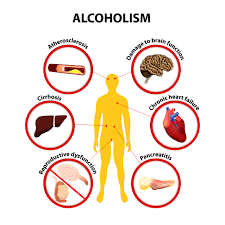Preterm babies are those who are born before 37 weeks of gestation. Low birth weight babies are born with a birth weight of less than 2500g. The incidence of low birth weight babies in India is 30 percent.
The possible reasons for low birth weight of babies are
- low maternal body mass index
- low age at marriage
- low maternal nutritional status with respect to iron and folic acid, and
- shorter duration of full term gestation.
Feeding is one of the major challenges in the care of the low birth weight babies. Goal of feeding the preterm is to achieve a growth rate that approaches the normal growth rate of foetus in utero.
The preterm is at a disadvantage in many aspects of nutrition.
The problem facing the preterm are
- poor sucking and swallowing reflexes
- relatively high caloric requirement with small stomach capacity
- poor gag reflex and incompetent cardio esophageal sphincter leading to
- aspiration, and
- Decreased absorption of essential nutrients.
Nutritional Requirements
Calories
The caloric needs of non-growing preterm babies during the first week of life are 60 kcal/kg/day. After first one or two weeks of life most preterm babies require 120-150 kcal/kg/day to maintain satisfactory growth. High calories may be necessary in babies who are not gaining weight, post-operative patients and extreme preterm.
Fluid
Fluid needs of the preterm babies are relatively high during the first week of life. The intake of fluids varies from 90-100 ml/kg/day for 7-1- days. Additional fluids may be required when the baby is under the phototherapy or a radiant warmer.
Carbohydrate
Preterm babies can tolerate 50 percent of the calories in the form of carbohydrates. Very low birth weight babies may have difficulty in tolerating the lactose the first few days. Glucose polymers are well tolerated.
Protein
Preterm babies require 3-4g of protein per kilogram of body weight for rapid growth. Excess of protein may lead to metabolic problems of acidosis and hyperammonemia. Human milk contains mainly whey proteins which are better utilized. Certain amino acids essential for the preterm such as cystine, taurine, alanine and arginine are present in breast milk.
Fat
About 40-50 percent of calories in diet of the preterm should be available from fats. Very low birth weight babies poorly digest and absorb saturated triglycerides. Vegetable oils containing unsaturated long chain fatty acids are better absorbed. Better still are medium chain triglycerides because their digestion and absorption are not dependent on bile salts level.
Vitamins and Minerals
All low birth weight babies should receive vitamin supplementation in addition to the amount present in human milk. This is because
- Premature infants are born with low body stores of vitamin
- Their growth rate are rapid
- Their gastrointestinal absorption is reduced and
- Their daily intake of milk feedings is initially low.






0 Comments